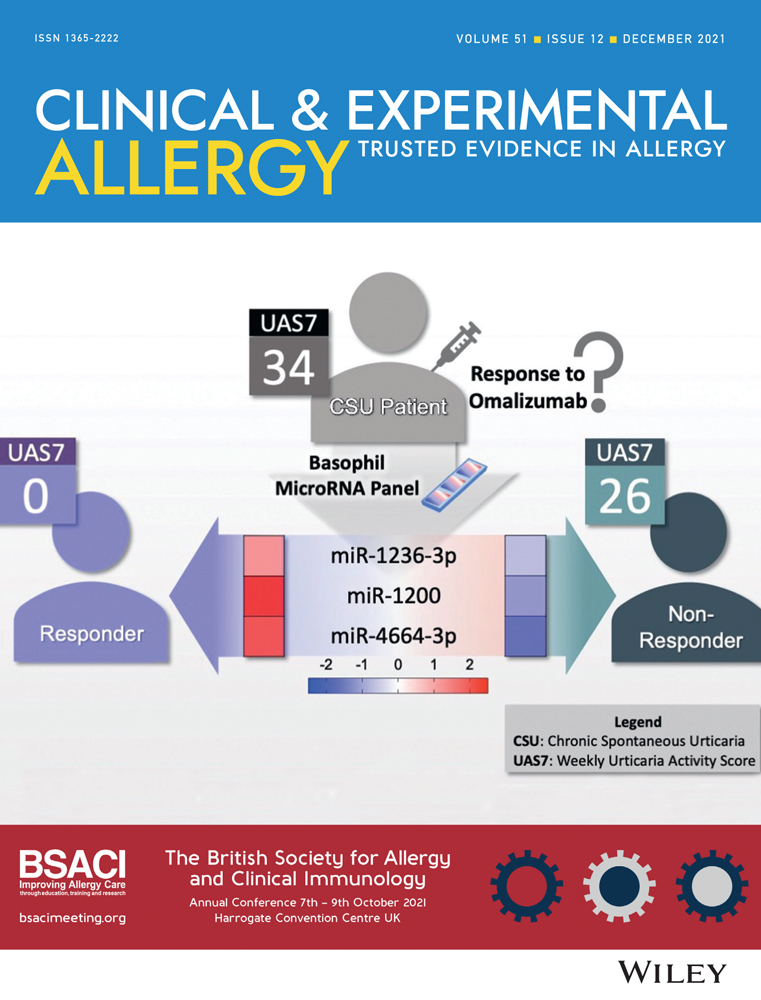Role of autophagy in regulating interleukin-10 and the responses to corticosteroids and statins in asthma
Funding Information
The funding of this study was provided by the Siriraj Grant for Research Development and Medical Education of the Faculty of Medicine Siriraj Hospital, Mahidol University.
Abstract
Background
Interleukin (IL)-10 is a key anti-inflammatory cytokine that may be reduced in asthma but is enhanced by corticosteroids, especially when combined with a statin, although the mechanisms of these effects are uncertain.
Objective
To study the role of autophagy in macrophages in promoting inflammation in asthma through reducing IL-10 secretion and how corticosteroids and statins may reverse this process.
Methods
We conducted a randomised double-blind placebo-controlled study in moderate to severe asthmatic patients (n = 44) to investigate the effect of an inhaled corticosteroid (budesonide 400 μg/day) and the combination of budesonide with an oral statin (simvastatin 10 mg/day) given for 8 weeks on autophagy protein expression in sputum cells by using immunocytochemistry and measurement of IL-10 release. In in vitro experiments, we studied cross-regulation between autophagy and IL-10 release by measuring the expression of autophagy proteins in M2-like macrophages and the effects of budesonide and simvastatin on these mechanisms.
Results
In asthmatic patients, inhaled budesonide inhibited airway macrophage autophagy (beclin-1, LC3) as well as autophagic flux (p62), which was enhanced by simvastatin and was correlated with increased sputum IL-10 and reduced IL-4 concentrations. In macrophages in vitro, budesonide and simvastatin inhibited rapamycin-induced autophagy as well as autophagic flux, with reduced expression of beclin-1 and LC3, but enhanced the accumulation of p62 and increased expression of IL-10, which itself further inhibited autophagy in macrophages. With siRNA-mediated silencing, LC3-deficient macrophages also showed a maximal induction of IL-10 transcription. Neutralisation of IL-10 with recombinant specific blocking antibody and silencing IL-10 transcription reversed the inhibitory effects of budesonide and simvastatin on macrophage autophagy.
Conclusion and clinical relevance
Inhibition by corticosteroids and a statin of macrophage autophagy enhances IL-10 production, resulting in the control of asthmatic inflammation.
CONFLICT OF INTERESTS
KM, KK and AW have no conflicts of interest to declare. PB has served on Scientific Advisory Boards of AstraZeneca, Boehringer-Ingelheim, Bespak, Chiesi, Daiichi-Sankyo, DeepBreeze, GlaxoSmithKline, Glenmark, Johnson & Johnson, Merck, Novartis, Nycomed/Takeda, Pfizer, Prosonix, RespiVert, Sun Pharmaceuticals, Teva and UCB and has received research funding from Aquinox Pharmaceuticals, AstraZeneca, Boehringer-Ingelheim, Chiesi, Daiichi-Sankyo, GSK, Novartis, Nycomed/Takeda, Pfizer, Prosonix, Sun Pharmaceuticals. He is also a cofounder of RespiVert (now part of Johnson & Johnson), which has discovered novel inhaled anti-inflammatory treatments for asthma and COPD.
Data sharing not applicable to this article as no datasets were generated or analysed during the current study.




